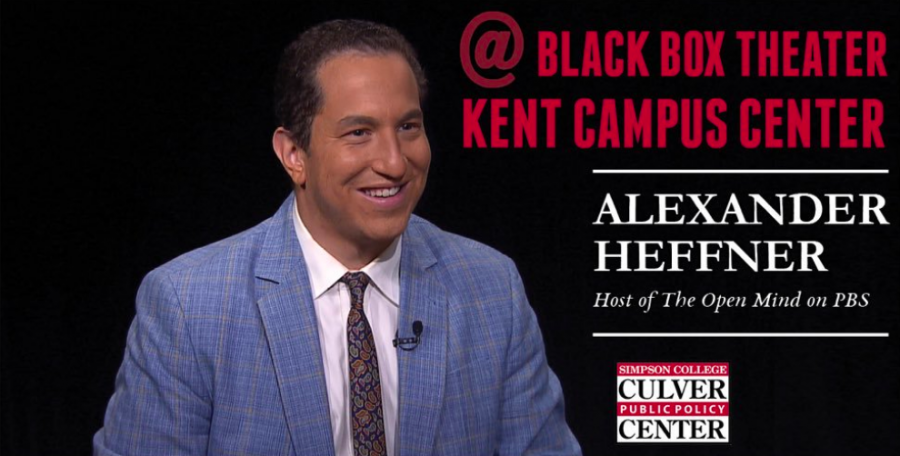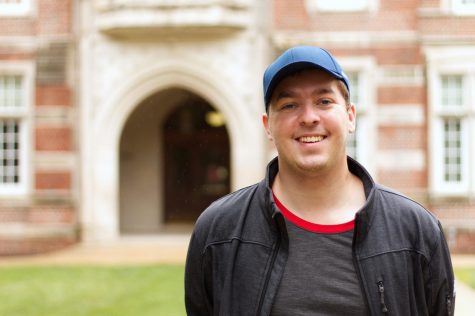Heffner speaks about civil discourse
November 6, 2019
PBS host Alexander Heffner spoke on the importance of keeping civil discourse open at a time when the political atmosphere is full of hatred on Tuesday night.
The lecture, titled “Civil Discourse in an Uncivil Age,” was held in Black Box at 7 p.m. The theater was mostly empty, with only twenty or thirty attendees spread throughout.
Heffner talked about the importance of discerning truths in an era where the truth is clouded by different points of view.
“We mustn’t ever concede ground on fundamental objective truths,” Heffner said. “And that’s what Moynihan was saying about the rigorous process to investigate public policy to the best of our ability and to find answers to challenges that are going to improve peoples’ lives.”
Heffner talked about possible solutions to ending uncivil discourse, especially the intense rhetoric emerging since the 2016 presidential election.
“I think of solutions to fixing uncivil political discourse or society as micro or macro,” Heffner said. “And I think we all ought to adopt that philosophy, that in our day to day lives. We can encourage our friends, neighbors, peers, coworkers to become more informed citizens. There are certain small or large measures that can be taken to help protect information integrity.”
Talking about the toxicity of political discourse emerging on social media, Heffner touched on Facebook’s Cambridge Analytica scandal in which 87 million users’ data was given to third parties without their consent. Those third parties then used the data to influence political ads and information users received.
“There are small steps as digital citizens that we can take to be cognizant of where we’re getting information, how we’re getting information and emphasizing the importance of the scientific process,” Heffner said.
Heffner talked about Twitter’s recent ban on political ads, as well as other social media platforms.
“And these companies, they’re imagining themselves to be constitutional scholars right now,” Heffner said. “Instead of understanding what is destructive speech and what is constructive speech. And their job is not to play constitutional lawyer or scholar.”
Heffner took questions from audience members at the event’s close and talked about the importance of keeping open political discourse without sacrificing one’s principles.
“I don’t think being a Better Angel is about ceding ground on your convictions,” Heffner said. “I think being a Better Angel is doing the legwork to listen with empathy and with concern, and then to protect the prosocial fiber of our being.”







